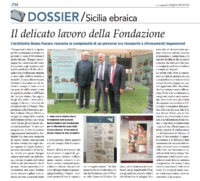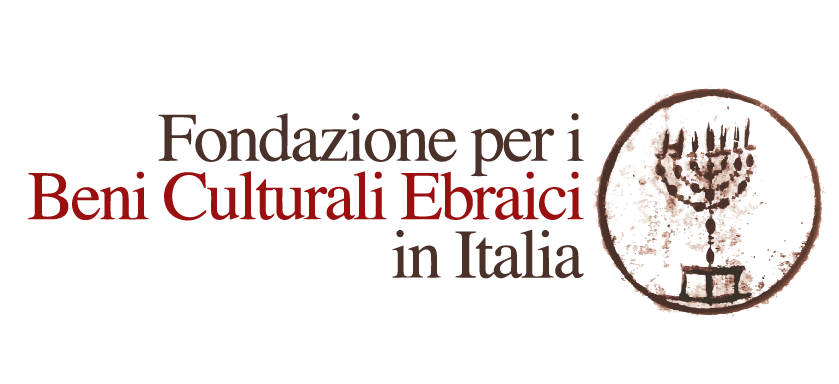 “We must be watchful and attentive, because in Sicily and in the south as a whole, the situation is very delicate. The revival must be helped to develop, but at the same time care must be taken: there are hundreds of websites and initiatives springing up that define themselves as Jewish, but which should be evaluated in historical and technical terms”. Renzo Funaro is cautious: he is the Florentine architect who for decades now has been working on restorations and regeneration of historic buildings, partly in his role as president of the Opera del Tempio ebraico. Among others, he has overseen the work carried out on the Siena synagogue, and the restoration of the Jewish cemeteries in Florence. As Vice President of the Italian Foundation for Jewish Cultural Heritage (Fbcei), he has been actively involved in the rebirth of Jewish culture in the South of Italy for many years. Without wanting to dampen enthusiasm, he advises prudence: “Many people are starting websites, sometimes rather mysterious organisations appear, foundations not formed of experts. Often these people have the best intentions, maybe they have a surname with Jewish origins, and they honestly think they’re doing something worthwhile. That’s partly why we must always intervene delicately, and seek to understand both actual value of the discoveries and people. Some re-appraisal initiatives are unfounded; they must always be carefully assessed, historic documents and proven evidence are essential. That’s one of the tasks of the Foundation”.
“We must be watchful and attentive, because in Sicily and in the south as a whole, the situation is very delicate. The revival must be helped to develop, but at the same time care must be taken: there are hundreds of websites and initiatives springing up that define themselves as Jewish, but which should be evaluated in historical and technical terms”. Renzo Funaro is cautious: he is the Florentine architect who for decades now has been working on restorations and regeneration of historic buildings, partly in his role as president of the Opera del Tempio ebraico. Among others, he has overseen the work carried out on the Siena synagogue, and the restoration of the Jewish cemeteries in Florence. As Vice President of the Italian Foundation for Jewish Cultural Heritage (Fbcei), he has been actively involved in the rebirth of Jewish culture in the South of Italy for many years. Without wanting to dampen enthusiasm, he advises prudence: “Many people are starting websites, sometimes rather mysterious organisations appear, foundations not formed of experts. Often these people have the best intentions, maybe they have a surname with Jewish origins, and they honestly think they’re doing something worthwhile. That’s partly why we must always intervene delicately, and seek to understand both actual value of the discoveries and people. Some re-appraisal initiatives are unfounded; they must always be carefully assessed, historic documents and proven evidence are essential. That’s one of the tasks of the Foundation”.
When it comes to rediscovering the histories and artefacts of Sicily’s glorious Jewish past, opportunities for tourist development often arise; these situations are potentially worthwhile but must necessarily pass certain protocols with the regions and individual municipalities, Funaro explains. “Local governments must be made aware that the only official interlocutor is the Union of Italian Jewish Communities, and that consulting with the experts at the Fbcei is fundamental, namely the architects, historians and rabbis who help with research. It’s not enough for people to be acting in good faith; training and expertise are necessary, and the ability to confer with the appropriate institutions, which exist and which are already working more and more intensively, with excellent results”. The Fbcei’s activities have been focusing on southern Italy for several years now, with a specific commission working to maintain a constantly up-to-date vision of the situation, which is complex and very varied. Links with local institutions and universities are strong; many academics in southern Italy have a strong interest in the question. Furthermore, to coincide with the upcoming European Day of Jewish Culture (EDJC), the Foundation is retrieving and restaging two exhibitions curated by the Italian Cultural Heritage Commission – with which the Ucei and Fbcei have worked closely – and by the University of Palermo. These are two occasions for deepening and disseminating knowledge; they will be touring around the many towns involved in the EDJC in order to illustrate the specific features of Jewish Sicily. Indeed, a huge number of small towns and villages show evidence of a Jewish quarter, which often was very important to local history. This is a vast, fascinating field of research in which much has still to be discovered.
Ada Treves, twitter @ada3ves
Dossier Sicilia ebraica, Pagine Ebraiche – August 2017





